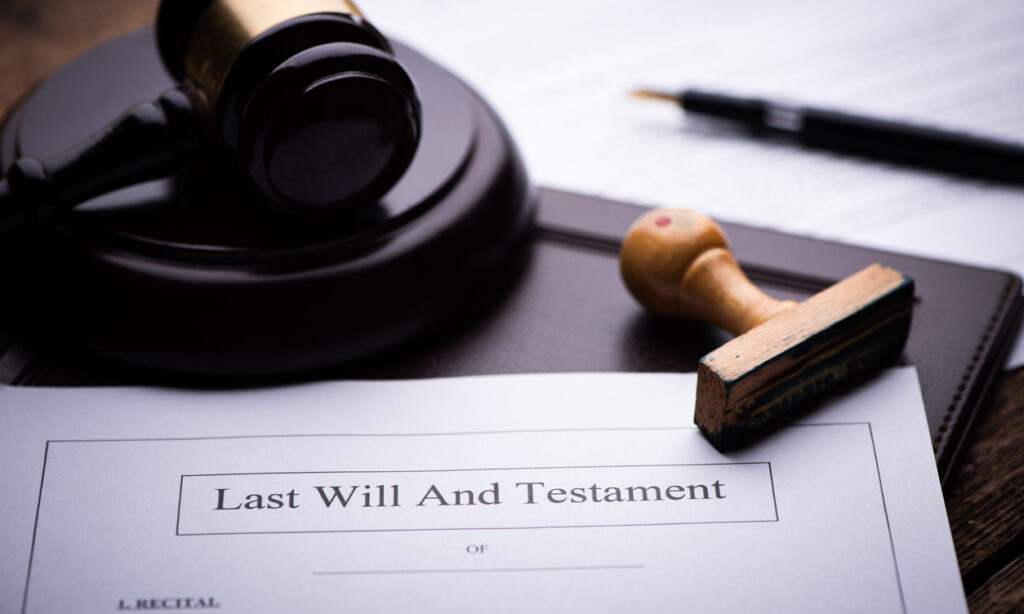Contesting a Will Solicitors

Contesting a will – expert legal support for inheritance disputes
If you’re considering contesting a will, it’s important to understand your legal rights and the options available to you. Whether you believe a will is invalid, or you’ve been unfairly excluded, our specialist contentious probate solicitors are here to help. We offer clear, practical guidance to support claimants, beneficiaries, trustees, and other interested parties through complex inheritance disputes.
Our team can assess your case and help you take the right steps forward.
Common grounds for contesting a will include:
- Lack of testamentary capacity – The person making the will (the testator) must have understood the implications at the time. Conditions like dementia may raise valid concerns.
- Failure to follow legal formalities – A valid will must be signed and witnessed correctly. Any deviation can lead to a successful challenge.
- Undue influence – If the testator was pressured or coerced into making or changing a will, it can be contested.
- Lack of knowledge or approval – The person making the will did not know what was in the will and were therefore unable to approve the contents of that will.
- Fraud and forgery – For instance the signature on the will may not be that of the testator or the text of the will may have been added after the signature. Expert handwriting evidence is likely to be necessary.
We also handle related trust disputes, representing clients in matters involving trustees, mismanagement, or exclusion from trust benefits.
Wherever you are on your journey, our legal advisors can help. Call us today on 0330 024 0333 or complete our contact form.Our Contesting a Will team
How our Contesting a Will experts can help
Court of Protection
Our Court of Protection services provide expert guidance for individuals lacking mental capacity. We assist with deputyship applications, managing financial affairs, and making best-interest decisions. With compassion and legal precision, we help families protect vulnerable loved ones while ensuring compliance with the Mental Capacity Act and safeguarding their rights.
Inheritance Act 1975 claims
Our Inheritance Act 1975 claims service supports individuals seeking fair provision from a deceased’s estate. We offer expert advice on eligibility and guide clients through the legal process with sensitivity and clarity, helping spouses, children, and dependents secure what they are rightfully entitled to under the law.
Independent advisers and trustees
Our independent advisors and trustees service offers impartial, professional support in managing trusts and estates. We act with integrity and transparency, ensuring compliance, resolving conflicts, and protecting beneficiaries’ interests. Whether appointed by the court as an Independent Administrator/Trustee or by agreement, we provide trusted oversight and expert guidance in complex or sensitive situations.
Why choose Shakespeare Martineau?
- Specialised expertise - Our team of dedicated trust dispute solicitors includes members of ACTAPS and STEP, reflecting our in-depth knowledge of trust disputes, contentious probate, and inheritance law. We offer practical legal guidance informed by years of experience resolving even the most complex trust litigation matters.
- Comprehensive legal support - We provide end-to-end legal assistance in all areas of trust and probate disputes, including trustee misconduct, beneficiary disputes, and challenges to the validity of trusts. Our cross-disciplinary approach ensures every angle is covered, delivering tailored solutions to meet your specific needs.
- Clear advice and transparent costs - From your initial free consultation to the conclusion of your case, we keep you fully informed about progress, strategy, and potential costs. We offer clear, jargon-free advice and explore all available funding options to make our services accessible and affordable.

Contesting a Will frequently asked questions
A claim to contest a will cannot be brought until the testator has died. It is sensible to commence a claim prior to the issue of the Grant of Probate to ensure that the assets of the estate are not distributed under the disputed Will. Once assets have been distributed it can be difficult and costly to have these brought back into the estate.
A caveat can be lodged online with the Probate Registry at minimal cost to prevent a Grant being issued.
In general, a claim to contest a Will must be brought within 12 years of the testator’s death although there is no time limit for contesting a Will based on fraud.
If a court rules that a will is legally invalid, either a previous valid will takes effect or, if none exists, the estate is distributed under the rules of intestacy. This outcome can impact beneficiaries significantly and may not reflect the deceased’s original intentions. Before contesting a will, it’s essential to consider the legal and financial consequences of success. Our team of experienced probate solicitors can help you evaluate the potential outcomes.
Undue influence occurs when someone pressures or manipulates the testator into changing their will against their true wishes. Warning signs may include sudden or suspicious changes, isolation from loved ones, or a beneficiary exerting excessive control. Contesting a will on the grounds of undue influence can be complex and often requires supporting evidence. We regularly handle these sensitive inheritance disputes.
Not necessarily. A person diagnosed with dementia can still make a valid will if they have “testamentary capacity” at the time of signing. This means they must understand the nature of the will, the extent of their estate, and who might expect to benefit. Medical records and expert assessments often play a key role in probate disputes involving mental capacity.
What our clients say about us
How the Contesting a Will process works
Not everyone is aware of how the process of engaging Contesting a Will solicitors works, so we’ve provided an overview below to give you some peace of mind.
The first stage is to get in touch with us using the button below – you will then be assigned to one of our Contesting a Will specialists. Alternatively, you can reach us on 0330 024 0333.
You’ll then receive a free 15-minute consultation within 24 hours via Zoom or telephone to discuss the issues you’re facing.
You are then provided with a transparent breakdown of our costs and, if you would like to proceed, we will send you a pack of onboarding documents.
Following this, we will guide and support you through the process of achieving a resolution that works for you and your family.
If you’d like to speak to a member of our team, please fill out the enquiry form. We will aim to reply to your query within 2 hours
Need to talk to someone sooner? You can call use at the number below
Call Us: 0330 024 0333
Featured Trusts and Estates Dispute services
Inheritance and Trusts Disputes
If you feel that a family member’s wishes have not been fulfilled, or you haven’t received what is rightfully yours, our specialist team can help you resolve your dispute, whether that is through mediation or negotiation, or court proceedings.
Inheritance Act 1975 Claims
If you’ve been left out of a will or received less than you need for your future, our specialist inheritance solicitors can help you bring a claim under the Inheritance Act 1975. We provide clear, compassionate guidance to secure fair financial provision and protect your rights with care and expertise.
Court of Protection Disputes
If you’re involved in a dispute about a loved one’s care, finances, or mental capacity, our specialist Court of Protection solicitors can guide you with clarity and compassion — helping to resolve sensitive issues such as contested deputyships, statutory wills, or financial abuse while protecting the vulnerable person’s best interests.
Independent Administrators and Trustees
If you’re facing conflict over how an estate or trust is being managed, or if relationships between executors, trustees, or beneficiaries have broken down, our independent administrator and trustee service can help resolve matters with impartiality, professionalism, and care — ensuring fair outcomes and smooth estate administration.













